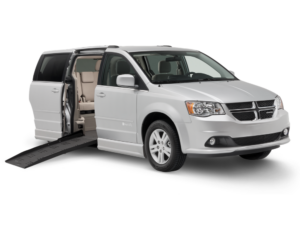 It’s time for people who write advice on job interviews to realize that people with disabilities are among those seeking jobs.
It’s time for people who write advice on job interviews to realize that people with disabilities are among those seeking jobs.
Job interview advisors frequently tell prospective employees to look the interviewer in the eye, give a firm handshake, speak clearly and watch your body language and movements.
Clearly, they either don’t believe people with disabilities are out there looking for jobs or they think only the normal or pretty people with disabilities pound the pavement in search of gainful employment.
It’s time to change that archaic thinking.
The unemployment rate for people with disabilities is double the national average. And its not because people with disabilities aren’t out there applying for jobs.
Instead, its because employers still have an ancient belief that people with disabilities are somehow not suited for the job.
So let’s change the script a bit, shall we?
1) Look the interviewer in the eye.
This advice is my number one pet peeve. I’m autistic and have very little eyesight. There is no way that I’m going to look an interviewer in the eye. You’re lucky to get me to look in your direction when I’m speaking to you. Not looking someone in the eyes doesn’t mean that I’m a shady character or that I’m disrespecting you.
Most of us on the autism spectrum cannot look people in the eye; it’s a facet of our disability. Being blind further complicates this. If an interviewer is going to judge an applicant based on this, that employer will likely miss out on an outstanding and valuable addition to their company.
2) Give a firm handshake.
Really? What if I don’t have hands, or cannot move them? Think about this. Even if I don’t “look” disabled, there are countless hidden disabilities. Don’t think that because I give you a limp handshake or none at all, that I am rude or not interested in the position that I’m applying for.
3) Speak clearly.
Some of us, due to our disabilities cannot speak clearly; some of us cannot speak at all. While there are some people with speech impairments who have electronic speech interpreters, there are those who do not. Also some people who have the interpreters prefer not to use them, but to try to communicate on their own. The interviewer must be patient and ask us to repeat ourselves if he or she doesn’t understand what we are saying. We won’t mind at all and you will gain a high-caliber employee.
4) Watch your body language and movements.
If you meet me, you will notice that I sometimes rock back and forth, and flap or wring my hands. Sometimes I shake uncontrollably. All of those movements are related to the autism or neurological disabilities that I live with. When I am nervous or under stress, the movements are more pronounced and telling me to control them results in a not-so-pretty scene. Rather than focus on my involuntary movements, concentrate on what I am saying and what is on my resume. As my past employers will tell you, they found me to be a gifted, knowledgeable, conscientious and hard-working team member.
Those of us with disabilities who are applying for jobs are very conscious of our abilities and limitations and will not waste our (or your) valuable time and energy seeking positions for which we are unqualified.
If we’re selected for an interview, know that we have the qualifications to fill the job even if it doesn’t appear due to your preconceived notions of disability.
Your best bet is to assume that we know what we are doing and treat us as you would any prospective employee. And seriously people, we shouldn’t have to offer an explanation for everything we do or don’t do. Remember that under the Americans with Disabilities Act (ADA), there are limitations to what you can ask, so be careful. If we don’t need reasonable accommodations, we are not required to disclose our disability if it is hidden. Instead, try thinking outside the box and realize that there may be a disability-related reason for why we are doing what we do. It doesn’t mean that we are unfit for the job.
Photo credit: OLIVIER LALIN / Foter / CC BY-NC

Find your perfect Wheelchair Van
Select from thousands of wheelchair vans for sale from hundreds of nationwide dealers
The Mobility Resource has one of the largest selections of Dodge, Toyota, Chrysler, Honda, Ford, Chevrolet wheelchair vans













Tweet
Share https://www.themobilityresource.com/blog/post/hr-people-avoid-these-4-aggravating-job-interview-tips-that-dont-fly-for-people-with-disabilities/